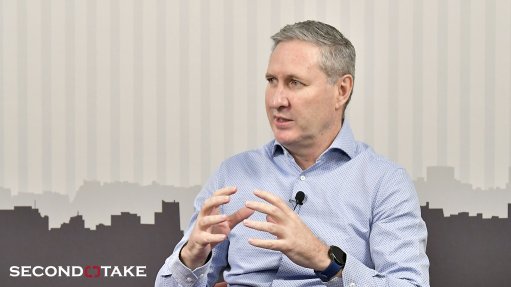South Africa's population swells to 62-million
In the last decade, the population in South Africa has increased by around 10 million people, with a total of 62 million people living in the country, according to the 2022 census.
Statistics South Africa released the fourth democratic census on Tuesday. The last census was published in 2011.
According to the data, there are 62 027 503 people in South Africa compared to the 2011 census, which recorded 51 770 560 people. This translated to a population growth rate of 1.8%.
Compared to the first democratic census published in the '90s, the population increased by more than 20 million people from 40 583 573 recorded in 1996.
The census also showed that there are more than 2.4 million international migrants in the country, which equates to around 3% of the total population.
Most of the international migrants come from the SADC region. Around 45.5% of international migrants come from Zimbabwe, 18.7% from Mozambique, and 10.2% from Lesotho.
Population composition
Black Africans remained the dominant population group, accounting for 81.4% of the population, which translates to around 50.4 million.
The black African population increased by around 9 million compared to the 2011 census, which recorded around 41 million black people.
The coloured population accounted for 8.2% or around 5 million people, followed by white people at 7.3% or 4.5 million people.
According to the data, the white population has steadily declined from 11% of the total population in 1996 to 8.9% in 2011 and then 7.3% in 2022.
The Indian and Asian population accounts for 2.7% of the total population.
Women constituted 51.1% of the population, while men accounted for 48.5%.
Population distribution by languages spoken at home
IsiZulu remains the language most spoken at home, accounting for 24.4%, followed by isiXhosa at 16.3%, Afrikaans at 10.6% and Sepedi at 10%.
Around 8.7% of the population speak English at home.
IsiZulu speakers increased by 1.7% compared to 2011, while isiXhosa speakers increased by 0.3% and Afrikaans speakers decreased by 2.9%.
Religion
The majority of the population reported that they were Christians (85.3%) followed by traditional African religions (7.8%).
Around 1.6% of the population subscribed to Islam, while 2.9% said they had no religious affiliation.
Population by province
Gauteng and KwaZulu-Natal remained the most populated provinces, with 15 million and 12.4 million people living there, respectively. The Western Cape has a population of around 7.4 million.
The Northern Cape has the smallest population of around 1.3 million people.
In terms of internal migration, Gauteng dominated, receiving more than a third of all internal migrants, followed by the Western Cape with 15%.
In the last decade, KwaZulu-Natal, Limpopo, the Eastern Cape and the Free State experienced an outflow of people.
Housing
Based on census 2022 findings, a total of 17.8 million households were recorded in South Africa, an increase from the 14 million households recorded in 2011. This includes formal and informal dwellings.
Gauteng with 5.3 million households and KwaZulu-Natal with 2.9 million, account for just under 50% of all households in the country.
The Northern Cape recorded the fewest households at 330 000.
According to the data, the number of households who reside in informal dwellings has declined from 13.6% in 2011 to 8.1% in 2022.
Meanwhile, households residing in formal dwelling units increased to 88.5% in 2022 from the 65.1% recorded in 1996.
Homelessness
The census also looked at collating the number of homeless people in South Africa.
Around 55 719 people were recorded as homeless in 2022. Of these, 44 512 were roofless while 11 207 were in shelters.
Gauteng recorded the highest number of homeless people at 45.6% followed by the Western Cape at 17.5%.
As a metropolitan area, the City of Tshwane recorded the highest proportion of homelessness.
Most people recorded loss of job/income (41.3%) as the reason for their homelessness, followed by alcohol and drug use (25%).
Access to basic services
The census 2022 recorded an upward trend to access to basic services from 2001 to 2022.
In 2022, more than 80% of households in the country have access to piped water, either inside their dwellings or inside their yards.
More than 90% of households have access to electricity for lighting, an increase from the 58% recorded in 2011.
The Western Cape has the largest population that has access to electricity, 88.7%, followed by Gauteng with 85%.
According to the data, there has been an upward trend in accessing the internet since 2011, which has been attributed to the rapid advancement of communication services such as cellphone ownership.
Households with no access to the internet decreased from 64.8% in 2011 to 21.1% in 2022.
Around 60.5% of households access the internet using cellphones and other mobile devices compared to 16.3% in 2011.
Education
According to the latest census, around 73.4% of the population aged between 5 and 24 attended educational institutions in 2022.
This represented a 3% increase since 1996.
The census notes that black African and coloured populations tend to be concentrated in the secondary level education which suggests higher dropout rates and limited progression to tertiary education.
Conversely, the white, Indian and Asian population groups are more likely to be concentrated in the completed secondary level and post-secondary education levels.
Meanwhile, more than 2.5-million people 20 years old and older reported having no schooling education, around 11.8 million completed some secondary schooling, with around 14.1 million people completing high school.
Collation of data
The 2022 census was the first-ever digital census conducted in South Africa.
The information was collected via a digital questionnaire using three different modes of collection, including computed assisted personal interviews where field workers visited households and conducted the interview with a handheld device.
In addition, telephone interviews were conducted, and the public was also able to complete the questionnaire over the internet.
The collection of the population and housing data started on 2 February 2022 and ended in May 2022.
Statistics SA received more than 20 million questionnaires from households, which formed the basis of the population and housing statistics.
Comments
Press Office
Announcements
What's On
Subscribe to improve your user experience...
Option 1 (equivalent of R125 a month):
Receive a weekly copy of Creamer Media's Engineering News & Mining Weekly magazine
(print copy for those in South Africa and e-magazine for those outside of South Africa)
Receive daily email newsletters
Access to full search results
Access archive of magazine back copies
Access to Projects in Progress
Access to ONE Research Report of your choice in PDF format
Option 2 (equivalent of R375 a month):
All benefits from Option 1
PLUS
Access to Creamer Media's Research Channel Africa for ALL Research Reports, in PDF format, on various industrial and mining sectors
including Electricity; Water; Energy Transition; Hydrogen; Roads, Rail and Ports; Coal; Gold; Platinum; Battery Metals; etc.
Already a subscriber?
Forgotten your password?
Receive weekly copy of Creamer Media's Engineering News & Mining Weekly magazine (print copy for those in South Africa and e-magazine for those outside of South Africa)
➕
Recieve daily email newsletters
➕
Access to full search results
➕
Access archive of magazine back copies
➕
Access to Projects in Progress
➕
Access to ONE Research Report of your choice in PDF format
RESEARCH CHANNEL AFRICA
R4500 (equivalent of R375 a month)
SUBSCRIBEAll benefits from Option 1
➕
Access to Creamer Media's Research Channel Africa for ALL Research Reports on various industrial and mining sectors, in PDF format, including on:
Electricity
➕
Water
➕
Energy Transition
➕
Hydrogen
➕
Roads, Rail and Ports
➕
Coal
➕
Gold
➕
Platinum
➕
Battery Metals
➕
etc.
Receive all benefits from Option 1 or Option 2 delivered to numerous people at your company
➕
Multiple User names and Passwords for simultaneous log-ins
➕
Intranet integration access to all in your organisation





















